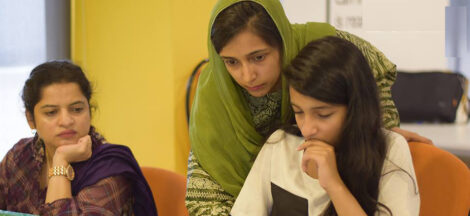Despite coming up with innovative ideas, the young Pakistani Entrepreneur remains delusional about Growth
Pakistanis are hard-working and ingenious people. In a country, where SMEs account for 99% of the total economic establishments and contribute 40% to the GDP (based on statistics from SMEDA); it’s justifiable to say, “Our nation is entrepreneurial by nature”. However, the most encouraging factor is the growing interest and involvement of our youth. According to the UNDP, 23% (approx. 12 Million) of Pakistan’s youth plans on starting their own business. Plan9’s recent Launchpad in Lahore was a mere indicator of this trend.
Of course, Plan9 receives hundreds of applications by young startups in each cycle (every six months). Out of the 60 teams, that were shortlisted to compete at the Launchpad for incubation into the Winter/Spring 2015 Cycle, only ten made the cut. I happened to be at the event and was delightfully amazed over the quality of ideas and pitching. From “Smart Shopping” to “Smart Handbags” to “Electronic Vehicles” and “Prosthetic Limbs”, there was no shortage of innovation and ingenuity. Yet, one particular subject on every startup’s pitch deck was tainted with misinterpretations. That particular subject was “business/financial growth”.
See also: 10 Pakistanis who are shaping the Tech Industry of Pakistan
A recent article in the Harvard Business Review pointed out that the entrepreneurial community has been led into believing that writing business plans and raising venture capital constitute the twin centerpieces of an entrepreneurial endeavor. However, it also points out that the reality is quite the opposite. Despite having immaculate business plans, a research by Harvard Business School reveals that 75% of all startups fail. As for the adverse effects of VC funding on a startup’s health, Fred Wilson (VC/Investor – Union Square Ventures) sums it up by saying, “The fact is that the amount of money start-ups raise in their seed and Series A rounds is inversely correlated with success. Yes, I mean that. Less money raised leads to more success. That is the data I stare at all the time.” In short, accepting VC funding too early on, will do more harm than good and therefore a vast majority of successful entrepreneurs never take any venture capital.
The young entrepreneurial community of Pakistan isn’t unaware to the beliefs mentioned above and therefore when “business/financial growth” is mentioned within pitches, these aspiring entrepreneurs will pull out five-year business plans; complete with million dollar sales projections, rapid customer acquisitions and jaw-dropping stock valuations, all on the premise that they will somehow acquire VC funding within six months of their business inception. Luckily, most seasoned entrepreneurs within our country have seen it all and therefore know that such business plans will rarely survive first contact with customers. As the boxer Mike Tyson once said about his opponents’ prefight strategies: “Everybody has a plan until they get punched in the mouth.”
So how will young Pakistani entrepreneurs come out of this delusion and end their plight? The answer is simple. Our entrepreneurial community will have to adapt to models and practices better suited to our conditions. Startup methodologies like “lean startup” and “agile development” will have to be made part of the entrepreneurial curricula. While initiatives like Plan9, LUMS Center for Entrepreneurship, PlanX, Invest2Innovate and most recently Nest I/O Tech Incubator by P@SHA are highly opportune for Pakistani startups, there is still need for many more. Additionally, our local entrepreneurial community needs better networking, collaboration and learning opportunities. In the end, the young Pakistani entrepreneur will have to work smarter than harder.
Image source: Fast Company





 Pakistan Bags 2 Gold & 3 Silver Awards at APICTA 2014
Pakistan Bags 2 Gold & 3 Silver Awards at APICTA 2014